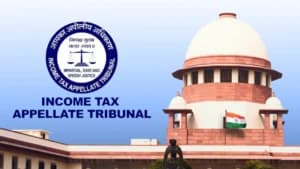The Punjab & Haryana High Court has strongly condemned the rejection of a family pension claim made by a specially-abled daughter, even after she fulfilled all legal requirements. The Court imposed a cost of ₹25,000 on the Union Territory of Chandigarh for acting in a mechanical and unjustified manner.
"Merely because she got married would make no difference," said Justice Sanjeev Prakash Sharma, speaking for the Division Bench which also included Justice H.S. Grewal.
The case concerned Poonam, a 70% specially-abled woman and the only surviving legal heir of her father Surinder Pal, a retired government employee who died in 2014. Her mother had passed away in 2012. Poonam applied for the family pension soon after her father’s death. Despite providing disability and legal heir certificates, her claim was rejected on the grounds that she was married and her husband's income exceeded the prescribed pension limit.
“The approach adopted by the petitioners in denying family pension to a specially-abled daughter, who was unmarried at the time of her father's retirement, was against the rules,” the Court held.
As per Rule 6.17 and its proviso in the Punjab Civil Services Rules, a son or daughter suffering from any physical or mental disability and unable to earn a living is entitled to family pension, even after becoming otherwise ineligible due to age or marriage.
“As per instructions dated 09.12.2015, if a daughter is disabled and unable to earn, she remains eligible for family pension beyond 25 years of age and despite being married,” the judgment added.
The Court also clarified that the husband's income cannot be considered part of the dependent’s earnings for evaluating eligibility. Poonam was a homemaker with no personal income, while her husband, also disabled, was drawing a government salary.
“The earnings of her husband cannot be said to be the earnings of the family for denying her family pension,” the Court emphasized.
Previously, the Central Administrative Tribunal (CAT) had ruled in her favor in 2018, ordering reconsideration of her claim. Despite this, UT Chandigarh continued to rely on outdated and misapplied provisions, ignoring the valid disability certificate and legal documents she had submitted.
The High Court reaffirmed the CAT’s decision and ordered immediate release of family pension with 9% interest on arrears. It also imposed ₹25,000 as cost for unnecessary litigation and wrongful denial of a legitimate right.
"We deprecate the approach adopted by the Union of India in challenging the proceedings before this Court with regard to a specially-abled person who has no source of earning," the bench remarked.
Mr. Abhinav Sood, Advocate, for petitioner nos. 1, 3 and 4. Mr. H. S. Jugait, Advocate, for petitioner no. 2.
Ms. Veena Kumari, Advocate, for respondent no.1.
Title: State of U. T. Chandigarh and others v. Poonam and others















